Magic Duels: Origins is the first digital version of the game to give players access to most of the current print run from the card game.
That's lots of joy for experienced players. But it can be overwhelming if you're new to the franchise.
However,
Origins is also the best digital version of the game we've seen yet. It's a showcase for all the reasons why the original card game has become a global phenomenon. So if there was ever a time to get over the learning curve to Magic, it's now.
There's already plenty of places where you can learn how to play and improve. So instead, we're going to tell you how to learn and improve at this specific version. So you can maximize your gold income and amass a competitive collection as fast as possible.
The White StartBefore you can do much at all in
Origins, you have to sit through some initial Skill Quests that teach you the rudiments of the game. Play them carefully. They're short, important and, best of all, earn you bonus gold.
From time to time the game offers you optional skill quests to learn about new effects and rules as you meet them. If you're new to the game, don't pass any of these up.
After that, you have to play through the initial solo campaign before going any further.
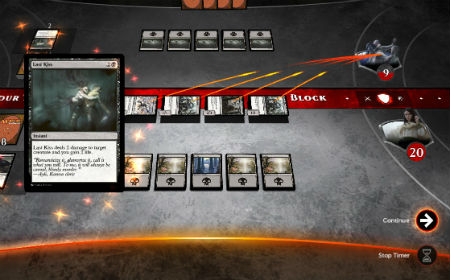
This is set in a Greek-style world and you're cast as a reformed convict and given a white deck to battle a series of opponents.
All magic cards come in one of five colours. The cards in each tend to reflect a certain style of play. White is largely defensive, with lots of heals, buffs and creatures that are good at blocking.
Your initial encounters should be fairly easy, even if you're new to the game. The deck you're given is full of buffs and flying creatures, which your opponent can only block with their own flying creatures. Early decks in this campaign are short on flyers, allowing you to make short work of them.
Campaigning for successOnce you're through that first campaign, you've unlocked all the game modes for your enjoyment. You'll also get a starter box of cards and have enough gold for a booster or two.
The temptation is to dive in and build a deck, but we suggest you wait.
Instead, play through the additional solo campaigns. There's one for each colour. These are rather more challenging than the starter campaign. But if you can't beat the opponents here, you're most assuredly not ready for play against other people yet, anyway.
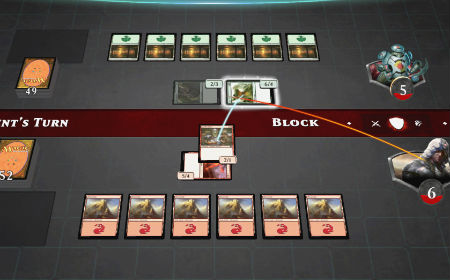
Take the black deck, for example. Black is the colour of necromancy. Correspondingly it's full of cards that interact with the graveyard and hurt other creatures and players. Often your own, too.
The deck you're given for this campaign illustrates how these interact. It's got lots of cheap cards that do something nasty to your opponent when they die. It's also got a powerful spell that allows you to remove enemy creatures from the game by sacrificing your own. Plus others that mean you can pick cards back from your graveyard.
So the drill is to play those cheap minions with damaging effects. Sacrifice them to clear the enemy side of the board while applying their deleterious death effects. Then whip them back into your hand again and repeat.
Wizard deckbuildingOnce you've got a decent portion of all the campaign games under your belt, you should have a much better understanding of the game. You'll know how each colour plays differently, and the sorts of card combos you can build.
It's time to try and build a deck for serious play.
If you try and use the free build mode, it will probably appear overwhelming. You can filter by colour and card type but not powers. That makes it extremely difficult to build combos until you know your deck much better.
Thankfully, the game provides an excellent tool to help you get to know it better in the form of the Deck Wizard. This allows you to pick a common deck archetype and will then suggest cards to fit that archetype. It even does it in stages, so you can get a sense of how the suggested cards should work together.
One thing you may have noticed during your campaign play is how helpful single-colour decks are. By sticking to just one colour you guarantee that all the land you draw can be useful for the spells you've got. By splitting to two or three colours you expand the range of combos available, but make it more likely you might not have the lands you need to cast them.
When you're starting out, however, you won't have enough cards to build a single colour deck. The Deck Wizard tries to steer you toward two colours, so go with that.
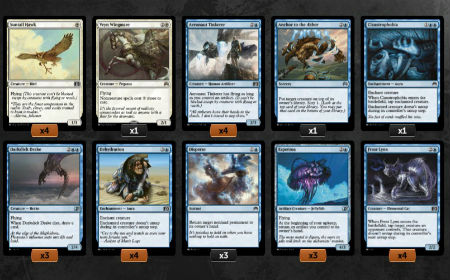
We suggest you start with the Magical Armour or Control the Sky archetypes. They're very easy to grasp concepts which you'll have met in the initial campaign. The former steers you toward buffing your creatures into unstoppable threats and the latter gives you flying minions that are hard to block.
Both will probably suggest lots of white cards, which is no bad thing since it's likely the colour you've got most experience with at this point.
One thing the Deck Wizard doesn't do is watch the cost of your cards. So try and make sure you get a mix of cheap and expensive spells which mean you'll have something to cast at every stage of the game.
Go for too many big spells and enemies may be able to close a win before you can cast them. Too many cheap ones and you won't be able to compete against powerful spells in the late game.
Walking the planesNow you're ready for the big leagues. Spend your time getting to know your deck a bit better against AI opponents before trying it out against other players.
If it doesn't succeed, have a think about why. Perhaps the balance of card combos or spells costs is a bit off? Maybe it's weak against particular colours or deck archetypes? When you identify a problem, tweak it and try again. Or just run through the Deck Wizard again for a new selection.
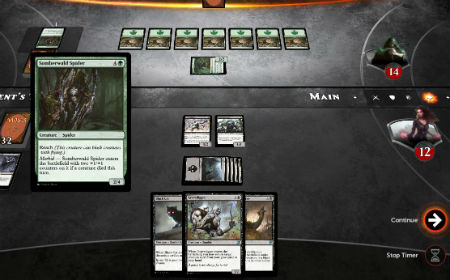
When you're happy, you can try playing it against some other human opponents. This is where wins can start earning you bigger gold rewards. Take a look at your quest selection and see if you can build or change a deck to tick some off. That can really boost your income.
Stay away from Two Headed Giant mode until you've got some more experience. It's lots of fun, but team play demands different combos and effects for success than single-player.
That will all come in time. For now, focus on building your collection as fast as possible. If you're enjoying yourself, now is probably a good time to spend some real money to support the game and speed your progress.
Before you know it, you'll be good enough to challenge the pros. And you may have acquired a minor addiction in the process. Blame Richard Garfield, not us.








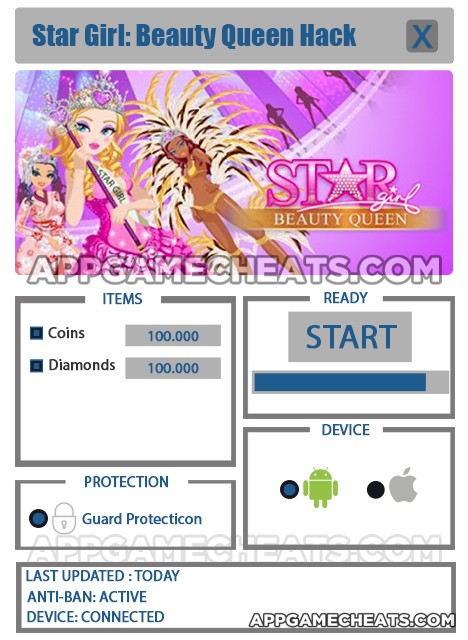

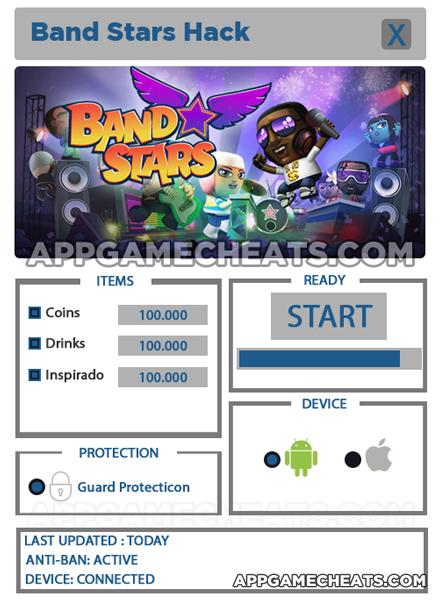 Band Stars Cheats, Review & Hack for Coins, Drinks & Inspirado - AppGameCheats.com
Band Stars Cheats, Review & Hack for Coins, Drinks & Inspirado - AppGameCheats.com BombSquad Cheats & Hack for Tickets & Money - AppGameCheats.com
BombSquad Cheats & Hack for Tickets & Money - AppGameCheats.com Nitro Nation Online Cheats & Hack for Gold & Cash - AppGameCheats.com
Nitro Nation Online Cheats & Hack for Gold & Cash - AppGameCheats.com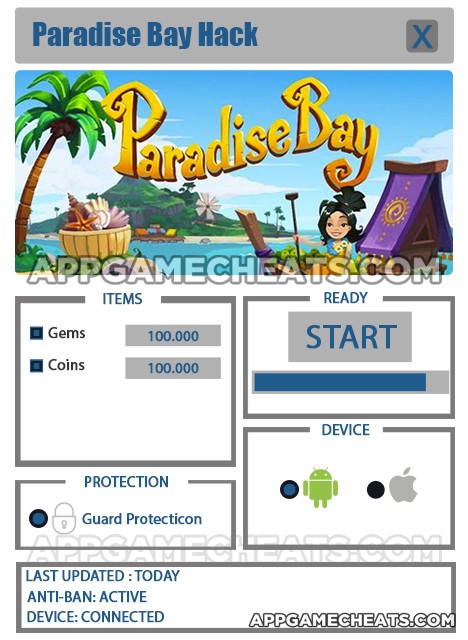 Paradise Bay Hack, Tips, & Cheats for Gems & Coins 2016
Paradise Bay Hack, Tips, & Cheats for Gems & Coins 2016 Little Alchemy All Combos 510+ Elements List
Little Alchemy All Combos 510+ Elements List